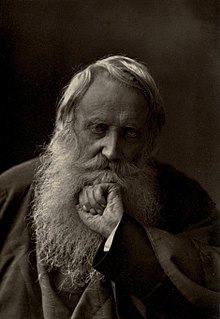A Quote by Richard Whately
Habits are formed, not at one stroke, but gradually and insensibly; so that, unless vigilant care be employed, a great change may come over the character without our being conscious of any.
Related Quotes
A secret may be sometimes best kept by keeping the secret of its being a secret. It is not many years since a State secret of the greatest importance was printed without being divulged, merely by sending it to the press like any other matter, and trusting to the mechanical habits of the persons employed. They printed it piecemeal in ignorance of what it was about.
An entertainment is something which distracts us or diverts us from the routine of daily life. It makes us for the time being forget our cares and worries; it interrupts our conscious thoughts and habits, rests our nerves and minds, though it may incidentally exhaust our bodies. Art, on the other hand, though it may divert us from the normal routine of our existence, causes us in some way or other to become conscious of that existence.
These are the times in which a genius would wish to live. It is not in the still calm of life, or the repose of a pacific station, that great characters are formed. The habits of a vigorous mind are formed in contending with difficulties. Great necessities call out great virtues. When a mind is raised, and animated by scenes that engage the heart, then those qualities which would otherwise lay dormant, wake into life and form the character of the hero and the statesman.
It is believed that physiognomy is only a simple development of the features already marked out by nature. It is my opinion, however, that in addition to this development, the features come insensibly to be formed and assume their shape from the frequent and habitual expression of certain affections of the soul. These affections are marked on the countenance; nothing is more certain than this; and when they turn into habits, they must leave on it durable impressions.
The time which passes over our heads so imperceptibly makes the same gradual change in habits, manners and character, as in personal appearance. At the revolution of every five years we find ourselves another and yet the same;--there is a change of views, and no less of the light in which we regard them; a change of motives as well as of action.
Some of us can accept others right where they are a lot more easily than we can accept ourselves. We feel that compassion is reserved for someone else, and it never occurs to us to feel it for ourselves. My experience is that by practicing without 'shoulds,' we gradually discover our wakefulness and our confidence. Gradually, without any agenda except to be honest and kind, we assume responsibility for being here in this unpredictable world, in this unique moment, in this precious human body.
Does character develop over time? In novels, of course it does: otherwise there wouldn't be much of a story. But in life? I sometimes wonder. Our attitudes and opinions change, we develop new habits and eccentricities; but that's something different, more like decoration. Perhaps character resembles intelligence, except that character peaks a little later: between twenty and thirty, say. And after that, we're just stuck with what we've got. We're on our own. If so, that would explain a lot of lives, wouldn't it? And also - if this isn't too grand a word - our tragedy.
Every change in conditions will make necessary some change in the use of resources, in the direction and kind of human activities, in habits and practices. And each change in the actions of those affected in the first instance will require further adjustments that will gradually extend through the whole of society. Every change thus in a sense creates a "problemfor society, even though no single individual perceives it as such; it is gradually "solvedby the establishment of a new overall adjustment.
There is one way by which a strolling player may be ever secure of success; that is, in our theatrical way of expressing it, to make a great deal of the character. To speak and act as in common life is not playing, nor is it what people come to see; natural speaking, like sweet wine, runs glibly over the palate and scarcely leaves any taste behind it; but being high in a part resembles vinegar, which grates upon the taste, and one feels it while he is drinking.






































